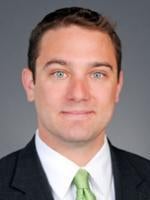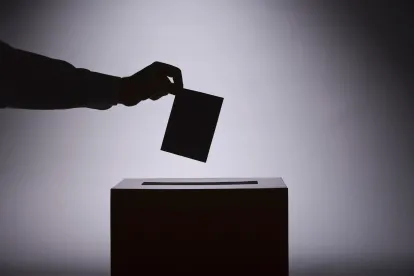Donald Trump’s presidential campaign recently moved to dismiss a Telephone Consumer Protection Act (“TCPA”) claim on First Amendment grounds. Thorne v. Donald J. Trump for President, Inc., 1:16-cv-04603 (N.D. Ill.). The class-action complaint alleged that the campaign violated the TCPA by sending text messages without permission. In response, the campaign argued that the TCPA’s prohibition on the use of automatic telephone dialing systems (“ATDS”) for calls or text messages placed to cellular telephones, 47 U.S. Code § 227(b)(1)(A)(iii) (the “cell phone ban”), improperly regulates speech on the basis of content. Specifically, the campaign asserted that the ban cannot withstand strict scrutiny because it does not “further[] a compelling interest” and is not “narrowly tailored to achieve that interest.” Arizona Free Enterprise Club’s Freedom Club PAC v. Bennett, 564 U.S. 721, 734 (2011).
The Complaint
The plaintiffs’ one-count complaint alleged that Trump’s campaign violated the TCPA by sending text messages to the cellular phones of thousands of individuals without asking for their permission. These text messages, according to the plaintiffs, stated that the individuals could “Make America Great Again!” if they subscribed to receive future alerts. The plaintiffs further alleged that Trump’s campaign sent these text messages through the use of ATDS.
The plaintiffs seek class certification, an award of US$500 in statutory damages for all class members, and an award of treble damages if the court finds that Trump’s campaign willfully or knowingly violated the TCPA. The plaintiffs also seek an injunction barring Trump’s campaign from using ATDS to send text messages to cellular phones without prior express consent.
The Motion to Dismiss
In response to these allegations, Trump’s campaign moved to dismiss the complaint. The campaign argued, among other things, that the TCPA violates the First Amendment’s guarantee of free speech. The campaign pointed out that Congress amended the cell phone ban in November 2015 to exempt calls relating to government debt. In its motion, the campaign states that this is “preferential treatment” and qualifies as a “blatant and egregious form of content discrimination.” Apart from this exemption, Trump’s campaign also argued that the Federal Communications Commission (“FCC”) created a number of other exemptions, including exemptions for financial institutions and healthcare providers. The Trump campaign maintained that these FCC created exemptions draw “distinctions based on the message a speaker conveys.”
The plaintiffs opposed the motion to dismiss and argued that the TCPA “does not target any particular ideas, messages or viewpoints.” Instead, according to the plaintiffs, the TCPA is “aimed at preventing text spammers from invading privacy and converting the property of others without their consent.” The plaintiffs asserted that a strict scrutiny analysis is inappropriate because the TCPA regulates commercial speech. A commercial speech regulation is valid if it justifies a substantial government interest, directly advances that interest, and is not more extensive than necessary to serve that interest. Cent. Hudson Gas & Elec. Corp. v. Pub. Serv. Comm’n of N.Y., 447 U.S. 557, 566 (1980). The plaintiffs also claimed that the Hobbs Act, 28 U.S.C. § 2342(a), deprives the court of jurisdiction to consider any exemptions created by the FCC.
Currently, the federal government is considering the possibility of intervening in the case to defend the constitutionality of the TCPA. According to a motion filed by the government, such an intervention requires obtaining the Solicitor General’s approval, which can take several weeks. The government has until November 22, 2016, to intervene.
As discussed previously on TCPA Watch, there is a long history of First Amendment challenges to the TCPA which courts have viewed skeptically to date. In opposing the Trump campaign’s motion, the plaintiffs cited to a substantial number of the decisions disposing of prior challenges.
But, even though First Amendment challenges to the TCPA have failed in the past, Trump’s campaign pointed out in its reply that all of those cases were decided before 2014. The FCC created new exemptions for financial institutions and health care providers in June 2015 and Congress amended the TCPA to exempt calls relating to government debt in November 2015. Indeed, there have been a number of other recent First Amendment challenges to the TCPA based in part on these new exemptions created by the FCC and Congress. See American Association of Political Consultants, Inc., et al. v. Lynch, No. 5:16-cv-00252 (E.D.N.C.) (discussed on TCPA Watch on May 16, 2016, July 19, 2016, and August 10, 2016); Brickman v. Facebook, Inc., 3:16-cv-00751-TEH (N.D. Cal. August 9, 2016).
It remains to be seen whether the Trump campaign’s First Amendment challenge will meet with more success than previous First Amendment challenges to the TCPA.







 />i
/>i
